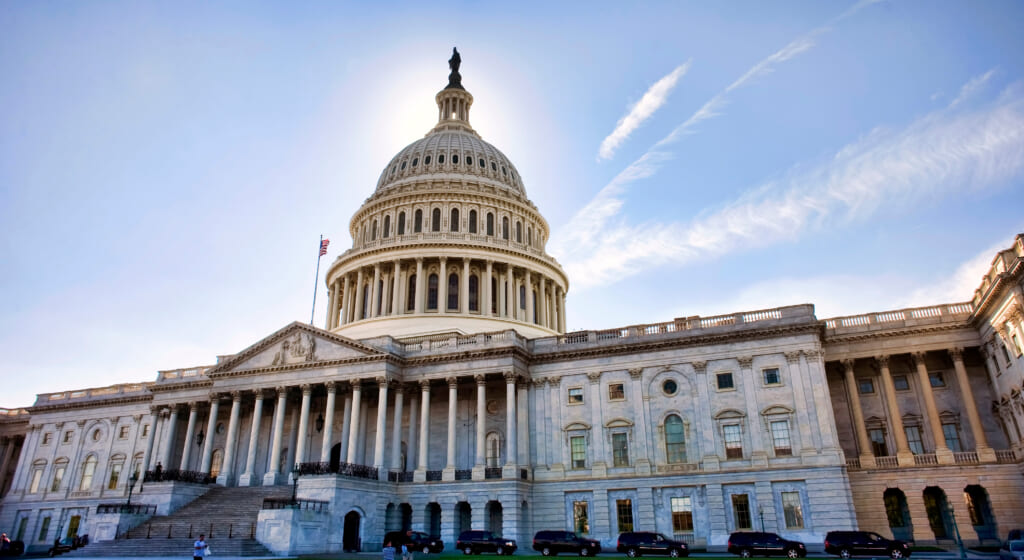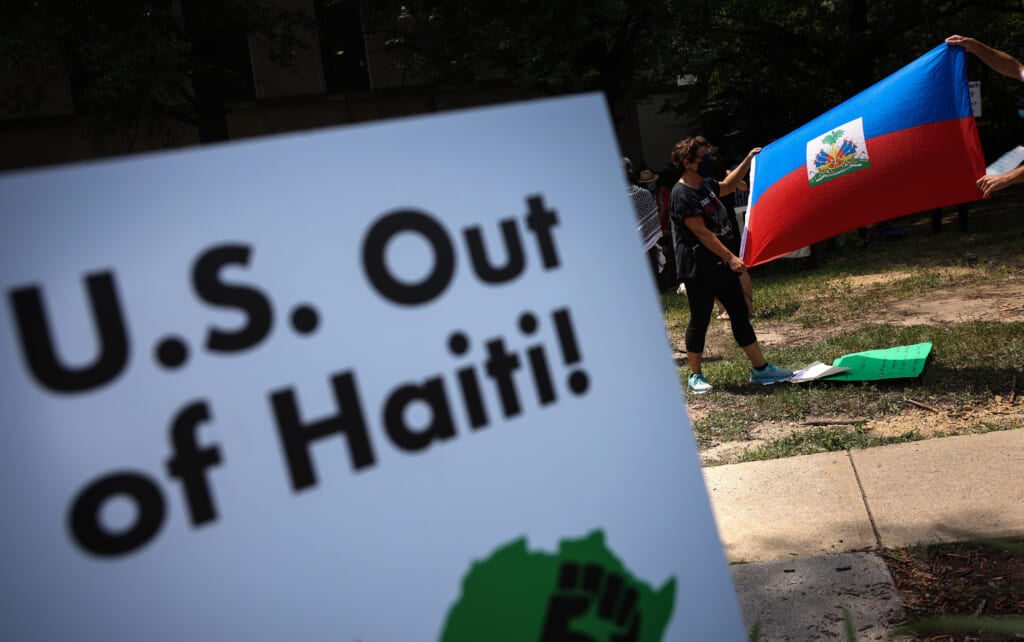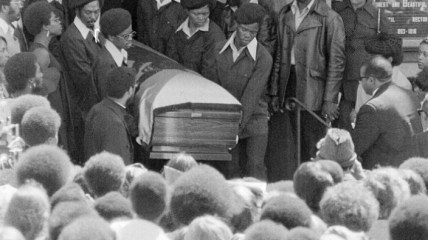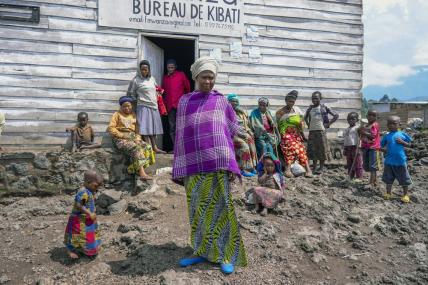Black advocates salute House resolution recognizing Haiti as first free Black nation, but demand US accountability
Haiti is also still reeling from colliding crises including the impact of two significant earthquakes in the last decade, political corruption, high crimes and the 2021 assassination of its president Jovenel Moïse.
Black advocates are applauding a recent resolution introduced in the U.S. House of Representatives that acknowledges both the history of Haiti as the first free Black nation in the Americas, and the historical harm caused by France after Haiti successfully gained its independence in the early 1800s.
The resolution, introduced on Sept. 22 by U.S. Reps. Ritchie Torres and Yvette Clarke, draws a direct correlation between Haiti’s current economic and social challenges and the “independence debt” that it was forced to pay France after winning the Haiti revolution war.
The House resolution also notes that on top of paying France for its independence to avoid further war and begin trading with other countries – despite successfully fighting off French troops in a years-long slave revolt – Haiti was compelled to take out loans from French banks to make their payments, which the resolution describes as a “double debt.”

“The social and economic consequences of decades of colonial brutality still significantly affect the country today,” said Congressman Torres in a statement. “Intentional recognition by the U.S. and France is crucial to move forward from the painful legacy left behind by slavery and colonialism.”
Congresswoman Clarke in a statement said: “Haiti’s double debt is nothing more than an unjust and callous colonial stain that has impacted Haitian civil society from its inception to present days. And it is long past time every American understands that indisputable fact.”
Guerline Jozef, founder of Haitian Bridge Alliance, said she was surprised that a resolution acknowledging Haiti’s independence and colonial history hadn’t happened sooner in Congress.
“It’s been over 200 years and nothing has been done,” she told theGrio. “The fact that it’s taken so long for a member of Congress or anyone in the American government to acknowledge that is incredible.”
Haiti, which has been embroiled in poverty for decades, is still reeling from colliding crises including the impact of two significant earthquakes in the last decade, political corruption, high crimes and the 2021 assassination of its president Jovenel Moïse.
While Haiti has often been called the poorest nation in the world, Joseph Tolton, founder and president of the Pan African advocacy group Interconnected Justice, said doing so is “factually incorrect and morally reprehensible.” Instead, he argued, Haiti “has been the most impoverished by external actors” — those actors being France and the United States.
Tolton cited a recent report by the New York Times about the U.S. invasion of Haiti and the role of the American bank, Citigroup, in extracting wealth from the country.

Both Tolton and Jozef believe that what’s missing from the recent House resolution is an acknowledgment that the United States meddled in Haiti after it successfully fought for its independence. For years, advocates have called for accountability.
“The United States refused to recognize Haiti as a new free country,” said Jozef, who noted that because the U.S. actively engaged in the enslavement of Africans at the time, “they saw Haiti as a threat to a system that was rooted in racism, white supremacy and slavery.” She added, “It is time for the United States to acknowledge their part in the impoverishment of Haiti.”
Still, Tolton credited Torres and Clarke for their leadership on the Haiti resolution, particularly at a time when immigration has reemerged in the national consciousness after the recent busing of migrants to Democratically-controlled cities by Republican Govs. Ron DeSantis of Florida and Greg Abbott of Texas.
“I think it’s really brought immigration back to the front pages … they were smart to deliver this resolution because there’s a win that they know that they have in terms of why this would be more readily welcomed and received at this very particular moment in time,” Tolton explained.
He said the resolution could have gone further by calling for the U.S. to increase its economic ties with Haiti – including making the Haitian Hemisphere Opportunity through Partnership Encouragement (HOPE) Act “more vital” – and tying in an education or funding program in partnership with a Historically Black College or University as it relates to ensuring the history of Haiti is taught in American classrooms.
The House resolution on Haiti also briefly called on the need for the U.S. government and the Biden-Harris administration to “promote smart and just immigration policy for Haitian immigrants presently in the United States, their families, and individuals seeking to immigrate to the United States in the future.”
Jozef said the call to action was necessary, as she and other advocacy groups have for years challenged the U.S. federal government for its treatment of Haitian and African migrants.
“I think it is necessary to look into how the United States continues to abuse, deport and expel Haitian migrants, but at the same time, welcome refugees and asylum seekers from Ukraine,” said Jozef. “We’ve just received 26,000 Ukrainians in less than two months, yet we have deported 26,000 Haitians under President Biden.”
“The way we have received Ukrainian people, who are white, with respect and dignity and compassion should not be an exception to the rule but should be the model by which will welcome all people,” she continued.
Tolton said he ultimately hopes that Reps. Torres and Clarke’s resolution will raise awareness for Haiti’s history of independence for African Americans. He argued that many remain “uneducated” about how many freedom movements achieved by Black Americans – from the abolitionist, civil rights, pan-African and Black Lives Matter movements – are a testament to Haiti.
“We are uneducated about the ways in which the Haitian Revolution was really the beginning of and planted the seeds,” he said. “I think that that would power and fuel a real African-American-led advocacy effort to push the U.S. government around our policy toward Haiti to push France also in terms of a real campaign around restitution.”
TheGrio is FREE on your TV via Apple TV, Amazon Fire, Roku, and Android TV. Please download theGrio mobile apps today!
More About:Politics











